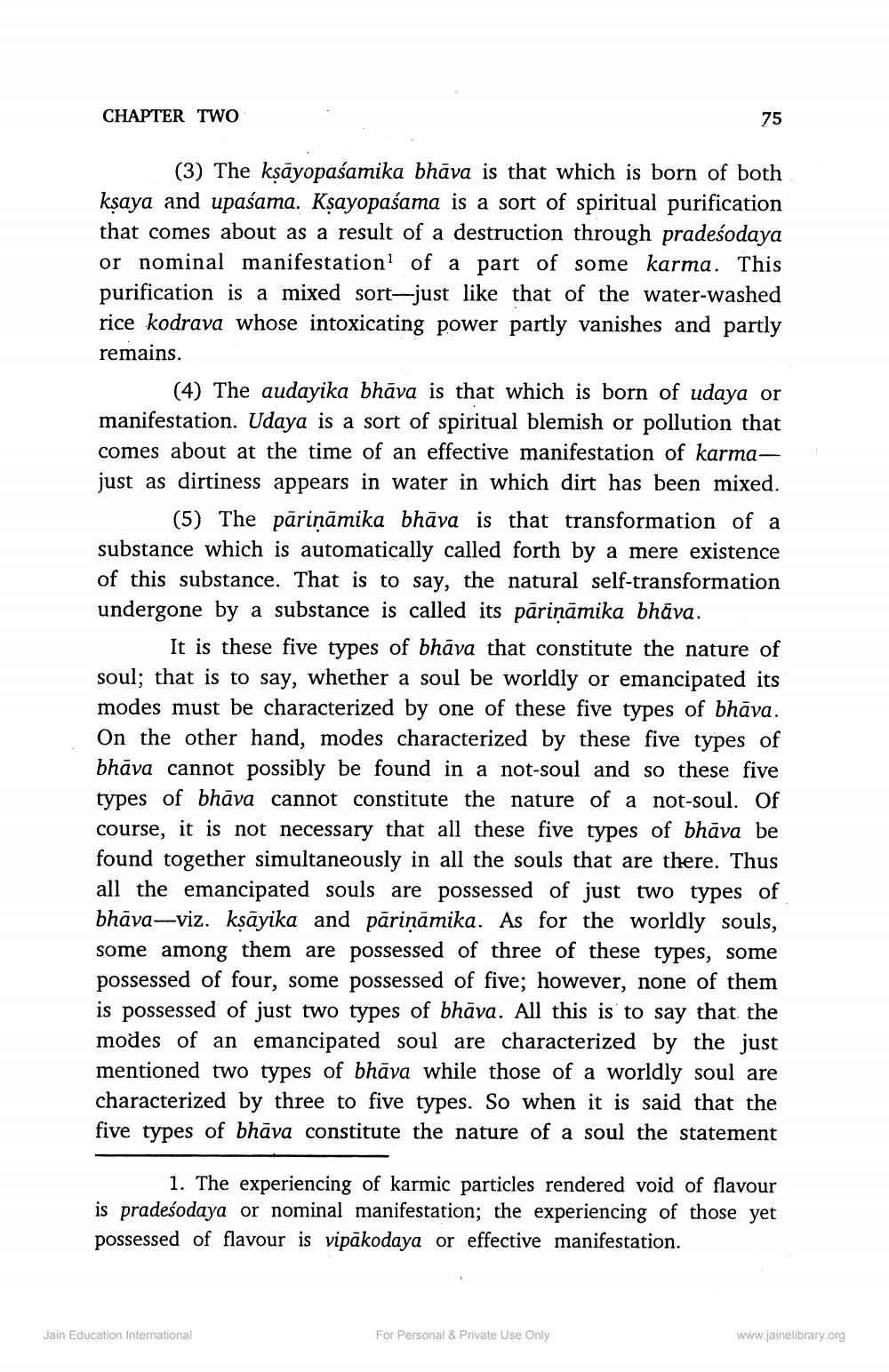________________
CHAPTER TWO
75
(3) The kṣāyopaśamika bhāva is that which is born of both kşaya and upaśama. Kșayopasama is a sort of spiritual purification that comes about as a result of a destruction through pradeśodaya or nominal manifestation of a part of some karma. This purification is a mixed sort—just like that of the water-washed rice kodrava whose intoxicating power partly vanishes and partly remains.
(4) The audayika bhāva is that which is born of udaya or manifestation. Udaya is a sort of spiritual blemish or pollution that comes about at the time of an effective manifestation of karmajust as dirtiness appears in water in which dirt has been mixed.
(5) The pāriņāmika bhāva is that transformation of a substance which is automatically called forth by a mere existence of this substance. That is to say, the natural self-transformation undergone by a substance is called its pāriņāmika bhāva.
It is these five types of bhāva that constitute the nature of soul; that is to say, whether a soul be worldly or emancipated its modes must be characterized by one of these five types of bhāva. On the other hand, modes characterized by these five types of bhāva cannot possibly be found in a not-soul and so these five types of bhāva cannot constitute the nature of a not-soul. Of course, it is not necessary that all these five types of bhāva be found together simultaneously in all the souls that are there. Thus all the emancipated souls are possessed of just two types of bhāva-viz. ksāyika and pāriņāmika. As for the worldly souls, some among them are possessed of three of these types, some possessed of four, some possessed of five; however, none of them is possessed of just two types of bhāva. All this is to say that the modes of an emancipated soul are characterized by the just mentioned two types of bhāva while those of a worldly soul are characterized by three to five types. So when it is said that the five types of bhāva constitute the nature of a soul the statement
1. The experiencing of karmic particles rendered void of flavour is pradeśodaya or nominal manifestation; the experiencing of those yet possessed of flavour is vipākodaya or effective manifestation.
Jain Education International
For Personal & Private Use Only
www.jainelibrary.org




